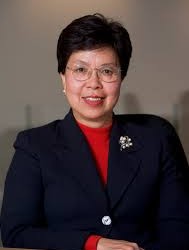By Caribbean Medical News Staff
Grounded on encouraging data from initial clinical trials around the end of 2014, the World Health Organisation (WHO) with the Health Ministry of Guinea, Médecins Sans Frontières (MSF), Epicentre and the Norwegian Institute of Public Health (NIPH), will launch a Phase III trial in Guinea to test the VSV-EBOV vaccine for efficacy and effectiveness to prevent Ebola. The vaccine was developed by the Public Health Agency of Canada. A second vaccine will be tested in a sequential study, as supply becomes available.
(WHO) Director-General, Dr Margaret Chan said, “We have worked hard to reach this point. There has been massive mobilization on the part of the affected countries and all partners to accelerate the development and availability of proven interventions. If a vaccine is found effective, it will be the first preventive tool against Ebola in history.”
Basse Guinée is the first area where the vaccination will take place; it currently has the highest number of cases in the country. The trial strategy adopted will be “ring vaccination”, based on the approach used to eradicate smallpox in the 1970s. This involves the identification of a newly diagnosed Ebola case – the “index case” – and the tracing of all his/her contacts. However, only with the consent of the contacts will the vaccination be administered.
Assistant Director-General Marie-Paule Kieny, who leads the Ebola Research and Development effort at WHO said, “the Ebola epidemic shows signs of receding but we cannot let down our guard until we reach zero cases. An effective vaccine to control current flare-ups could be the game-changer to finally end this epidemic and an insurance policy for any future ones.”
Canadian governmental institutions are supporting the trial through the provision of critical training and support to the African research teams conducting the trial, in addition to scientific advice.
The goals of the trial are two-fold: to assess if the vaccine protects the contacts who were vaccinated and if vaccinating the contacts will create a buffer – or ring of protected individuals – around the index case to prevent further spread of the infection. Vaccination will also be proposed to frontline workers in the area where the trial will take place.
WHO has recently convened a series of emergency consultations with scientists, ethicists, regulators and policy makers to identify potential preventive and therapeutic products to help stem the epidemic. Canada’s VSV and GSK cAd3 vaccines quickly emerged as promising tools due to prior successful studies on non-human primates.
Since September 2014, the two most advanced Ebola vaccines have been evaluated in about 15 countries in Africa, Europe and North America. The testing timelines were considerably accelerated through the simultaneous organization of multiple trials and emergency procedures to expedite data sharing and analysis between the investigators and manufacturers. The VSV-EBOV vaccine was selected for the planned trial based on a framework of parameters developed by the WHO Scientific and Technical Advisory Committee on Ebola Experimental interventions (STAC-EE). Criteria included acceptable safety profile, induction of appropriate immune responses, including neutralizing antibodies, and the timely availability of sufficient supplies of vaccine doses.
Additional measures were taken to accelerate the testing process by organizing multi-country emergency assessments, joint ethical and regulatory reviews of trial protocols and clearing of regulatory hurdles. For the Guinea trial, the Guinea National Regulatory Authority with support from Health Canada both reviewed the trial protocol.
UNICEF, WHO, US Centers for Disease Control (CDC), the Bill and Melinda Gates Foundation and Global Vaccine Alliance (GAVI) are cooperating with the affected countries to develop plans and strategies for large-scale introduction, should this be needed. The vaccines’ manufacturers have assured that enough vaccine will be available in the coming months. Millions of doses will be funded by GAVI, whose Executive Board approved a US$ 300 million in funding. Financial resources are in place to buy and make vaccines available to the other Ebola affected countries.
- Home
- News
- Views
- Opinion
- Editorial
- Features
- Clinical
- Regions
- Anguilla
- Antigua and Barbuda
- Bahamas
- Barbados
- Belize
- Bermuda
- British Virgin Islands
- Cayman Islands
- Dominica
- Grenada
- Guyana
- Jamaica
- Montserrat
- Saint Kitts and Nevis
- Saint Lucia
- Saint Martin
- Saint Vincent and the Grenadines
- Saint-Barthélemy
- Trinidad and Tobago
- Turks and Caicos Islands
- US Virgin Islands














